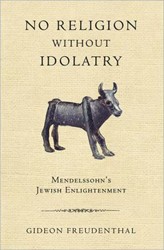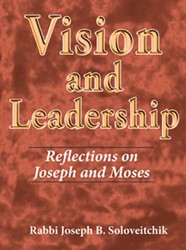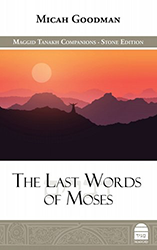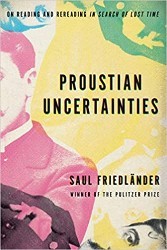Can someone who believes that the Torah was given to Moses on Mt. Sinai reconcile that belief with the findings of modern historical scholarship? Rabbi Dr. Joshua Berman, a professor of Bible at Bar Ilan University, offers a framework for processing this tension in Ani Maamin: Biblical Criticism, Historical Truth and the Thirteen Principles of Faith.
Beginning by noting that the ancients thought and wrote in ways different than moderns – and that the Bible doesn’t have words for our contemporary concepts of belief, history, author, fact, fiction, religion, and politics – Berman demonstrates how perceived inconsistencies between different parts of the biblical text, and occasional peculiarities (for example, artificially round numbers in the census of the Israelites during their desert wanderings) can often be contextualized in light of the writing styles of the ancient world. In the biblical era, ideological messages of the text were paramount and there was no concept of the “objective” journalism and “historical accuracy” of contemporary scholarship.
Reworking parts of his earlier, scholarly writings to produce a more accessible volume, Berman provides fascinating examples of utilizing knowledge of the ancient world to better appreciate the Bible’s messages. The Exodus and splitting of the Red Sea are properly understood, argues the author, by understanding how the imperial messages of Pharaoh, as articulated in ancient poems describing his supposed military prowess and in artistic renderings of his portable battle tent were undermined by the ancient Israelites’ Song at the Sea and their Tabernacle, respectively. The Song sung by the Israelites, Berman shows, utilized similar language to that of Pharaoh’s victorious battle inscriptions, now rephrased to show how the Jewish God had triumphed over that very same monarch. The structure of the traveling sanctuary mirrors the structure of the Egyptian ruler’s own battle tent, but is meant to celebrate the rulership of God, not a human leader. Noah’s flood in the book of Genesis and the seeming internal contradictions in its narrative can be properly understood through comparisons to other flood stories from before the biblical period. And legal discrepancies between different parts of the Five Books of Moses can be explained through understanding the usage of common law, which is more fluid than statutory law.
Berman’s book has much to offer both Jews and others inspired by the Hebrew Bible. His section on how the Bible provides a more egalitarian ethos than other political philosophies of its time (for example, through Shabbat, a day of rest for all strata of society, and the division of governmental powers in Israel between the king, prophets, and priests) is an inspiring and helpful summary of the major arguments of his 2008 full-length treatment.
The final portion of the book, which gives the work its title, is a historical contextualizing of Maimonides’ Principles of Faith (which liturgically have been recited as a series of statements beginning with “ani maamin” –“I believe”) the eighth of which mandates belief that every word of the Bible was dictated to Moses on Mt. Sinai. In a tour de force of intellectual history, Berman reviews how Maimonides’ list emerged within the context of Islamic hegemony and Muslims’ claims of possessing a divine and perfect Quranic text, and grew into a boundary marker between Orthodox and non-Orthodox Jews in the modern era.
Dr. Stu Halpern is Senior Advisor to the Provost of Yeshiva University. He has edited or coedited 17 books, including Torah and Western Thought: Intellectual Portraits of Orthodoxy and Modernity and Books of the People: Revisiting Classic Works of Jewish Thought, and has lectured in synagogues, Hillels and adult Jewish educational settings across the U.S.





